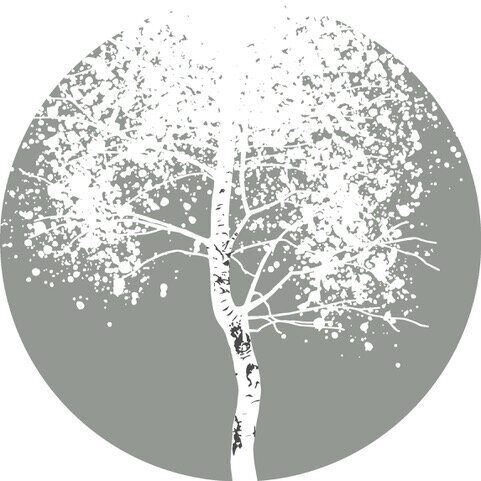What is stress? How can I manage it?
/Put simply, stress is change. Our body has a resting state; one where all systems are working together in harmony. This is known as homeostasis. When we encounter a change to our mental physical or physiological state, homeostasis goes awry. The systems work together to restore homeostasis but in times of stress, this is challenging.
When we are stressed we release the stress hormone cortisol. This enables us to mobilise energy to fight or flee from a situation which literally disrupts homeostasis; calling all systems to deal with the immediate threat. Cortisol is released whether or not you need to flee or fight. Even if you feel stressed by a thought, you still release cortisol. If we don’t it up by responding physically, it continues to circulate through our system causing problems.
Cortisol suppresses the immune system. Have you noticed how when you are stressed you tend to get ill? Perhaps more commonly, as homeostasis returns, just when you go on holiday for instance, you go down with a virus because the immune system can finally attack whatever pathogen has been circulating around your body all this time.
It is much harder for the body to defend itself when stressed because it is dealing with immediate threat. Imagine your life depended on running away from a situation. Which bodily systems do you require? Digestive? Not now. Urinary? Nope. Reproductive? Certainly not! So when we are stressed it’s common to suffer from digestive complaints such as Irritable Bowel Syndrome (IBS), Urinary Tract Infections (UTI's) and many find it difficult to conceive after years of stress. Insomnia is another common problem; cortisol reduces the production of melatonin; a hormone produced at night. I could go on but I think you get the picture. Prolonged stress is bad for our health.
So what can you do to help yourself?
Firstly, exercise to get rid of the build up of cortisol. Cortisol levels rise naturally first thing in the morning to help wake us up. This is the ideal time to go for a run, bike ride or practice strong poses such as chair pose, warrior 2 and lunges that utilise the largest muscles of the body; thighs and buttocks.
Exercise stimulates the release of cortisol; afterall it is a kind of stress on the body which is why it’s important to choose the right time of day to exercise and balance this with stretches and gentle, restorative techniques.
There is a direct connection between our breath and our autonomic nervous system (ANS). The ANS plays a significant role in homeostasis. When we inhale, we stimulate the sympathetic branch. This is the branch that gets excited when we need to respond to a threat. When we exhale, we stimulate the parasympathetic branch responsible for ease. By practicing breathing techniques such as Ujjayi, where our intention is to lengthen the exhalation and breathe harmoniously, we restore equilibrium to the ANS.
In a particularly stressful situation, you may notice that your breath rises into your chest. This is because cortisol has been released and your body is preparing to run or fight. If we deliberately bring the breath down to the belly using the diaphragm to breathe and lengthen the exhalations using Ujjayi, we calm the nervous system; we override the SNS with the PNS enabling the systems of the body return to homeostasis.
Because stress is so often triggered by our own thoughts, Mindfulness is particularly useful. Mindfulness simply means paying attention in the present moment without judgement We can understand our behavioral patterns through our feelings, emotions, and thoughts. Mindfulness teaches us to see our actions or reactions for what they are. This empowers us to pause before reacting and so prevent the stress response from being triggered.
Mindfulness has been talked about so frequently that is has almost developed a bad reputation. People switch off the minute they hear the word. But it is not just meditation. There are many ways we can be mindful and add practices to our daily life to support our wellbeing.
Self compassion is a key component of stress management. We develop our tolerance to stress by encountering new stressors such as a new environment or situation. The more we learn to adapt to change, the easier it becomes to stabilise oneself. This is what is termed Allostasis; stability under change. However, if stress continues to be applied, one's capacity to maintain stability is undermined. At this point we have reached our allostatic load. Our life story determines our allostatic load. If we can offer self compassion towards our ability or inability to cope, we may find the stress is less potent.
The human brain has a negativity bias. This is a survival instinct but one that is less helpful in our modern way of living. Understanding that it is natural to be negative, scared or concerned and offering self compassion may be the catalyst that helps us jump across the fear barrier and break the cycle.
These are the components of the De-Stress Your Mid-Life course offered at Birchwood Yoga. Whilst stress relief is important, we can all benefit from adopting skills that help us manage stress so that is doesn’t cause burn out, severe illness or poor mental health. Stress is the catalyst for disease purely because cortisol has such an impact on down regulating the body’s systems and disrupting homeostasis. If you need support, you are welcome to drop me an email so we can start a conversation about how to restore equilibrium to your life.
Go well,
Anneliese

